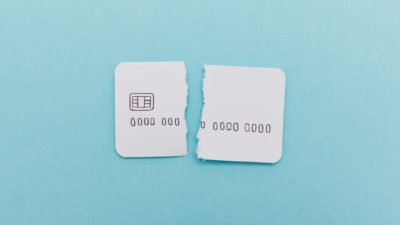Many Aussies are worried about their credit card debt right now. Coronavirus fears have plunged the global economy into uncertain times and sent the S&P/ASX 200 Index (ASX: XJO) into a bear market.
There are many sectors that are feeling the pain right now including hospitality, travel, recruitment and many more. If you're trying to work out what to do with your credit card debt today, here are a few tips to get you started.
Work out how much credit card debt you have
Credit card debt can spiral out of control very quickly. A good first step is to work out exactly how much money you owe and to whom. Once you know what the grand total is, you'll be in a better position to manage that debt.
If you have multiple cards, this could be quite the exercise. Take the time that you have at home right now to sit down and tackle this as a priority. Given credit card debt can have interest rates well over 20%, this is a great use of your time to get it under control.
Cut down on your spending where you can
It goes without saying, but reduce your spending where you can. When times are tough and money is tight, it might be tempting to put your spending on your credit card. If that's the only option, then that's OK. However, if it's not a necessity, pay for it with the money you have in your bank account.
If you don't have the money, don't buy unnecessary goods. Tough times mean tightening the belt and cutting back to just the necessities. This is vital if you're going to get your credit card debt under control in 2020.
Seek out assistance
If your credit card debt has ballooned out of control, seek out assistance. This could be from your provider or from national debt help services.
Commonwealth Bank of Australia (ASX: CBA) announced on Thursday that it would be forgiving credit card defaults. Many of the banks are stepping up to help Aussies given the hardship that COVID-19 has forced on some. Starting with your credit card provider can be a great first step right now.
If you want to go beyond your provider, ASIC's MoneySmart or the National Debt Helpline are some other good resources to make the most of.
Foolish takeaway
The key takeaway here is to be proactive. If you want to get your credit card debt under control, it will take some big changes. If you can reduce your spending and put a plan in place, you'll be able to reduce your financial stress and whip your finances into shape.

